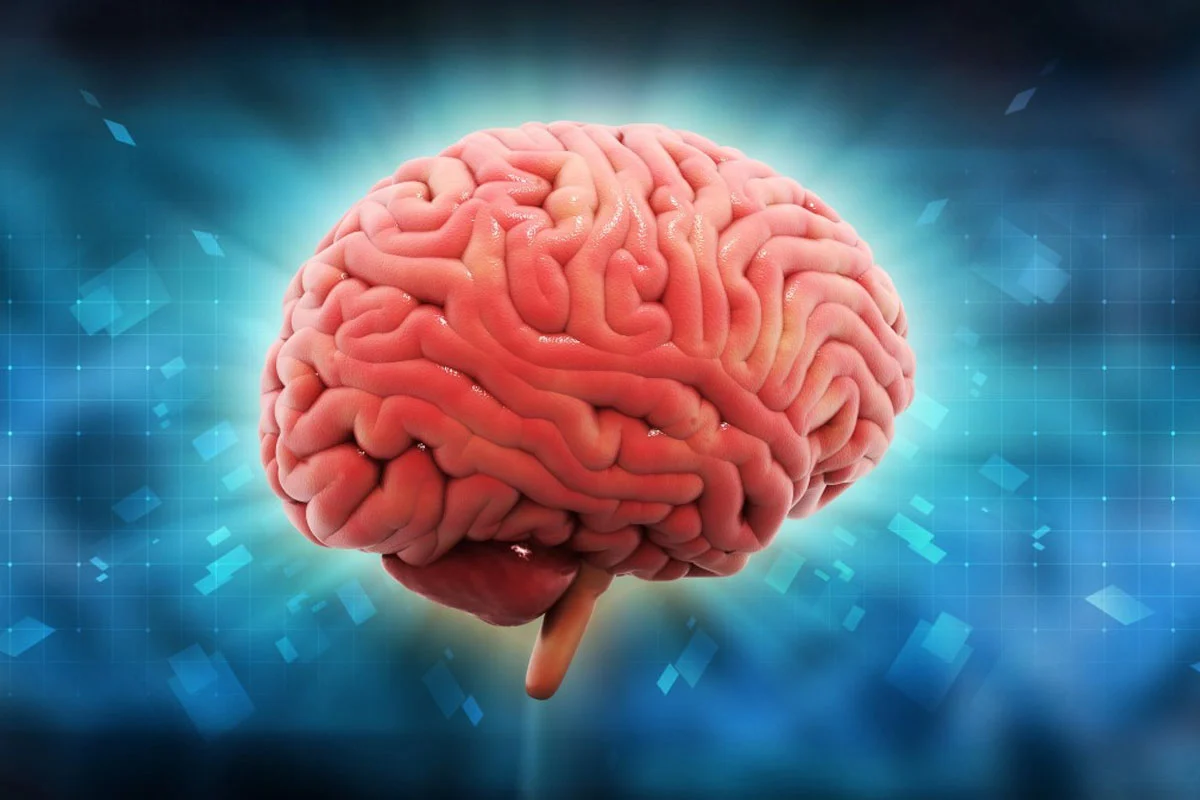Table of Contents
Exercise Daily – Fasting has been practiced for centuries for various reasons, including religious, cultural, and health purposes. In recent years, fasting has gained popularity in the health and fitness world due to its numerous benefits, including weight loss, improved insulin sensitivity, and enhanced cellular repair. One form of fasting that has gained attention is the 12-hour fast, which involves abstaining from food and drink for a full day. In this article, we will explore the benefits of 12-hour fasting, the religious and non-religious perspectives on fasting, and the different types of fasting.
While the idea of going without food for half a day may seem daunting, the benefits of this practice are truly remarkable. From improved metabolism and blood sugar control to reduced inflammation and disease risk, there’s no shortage of reasons why fasting can be a game-changer for brain and gut health and your well-being. So grab some water, buckle up, and get ready to eat breakfast and learn all about the incredible benefits of 12-hour fasts!
Benefits of 12-Hour Fasting
12-hour fasting is a type of intermittent fasting that involves abstaining from food and beverages, for 12 hours. This type of intermittent fasting journey has several benefits, including:
1) Improved cognitive function and memory.
The cognitive benefits of fasting are well-documented. One study found that long-term intermittent fasting improved memory and learning ability in rats. Fasting also decreases inflammation and increases brain-derived neurotrophic factor (BDNF), which is responsible for the growth and survival of neurons. BDNF levels are decreased with age, which may be one reason why cognitive function declines with age.
Fasting also has a positive effect on mood and anxiety levels. A 2018 study found that people who fasted for 12 hours or more reported less stress and improved moods than those who didn’t fast. Fasting can also help improve your body’s resistance to disease by promoting healthy immune system function.
There are many benefits of fasting for 12 hours or more nonfasting days. Some of the main benefits are improved cognitive function and memory, reduction in stress and anxiety, promotion of a healthy lifestyle, immune system function, and weight loss.

2) Decreased risk of chronic diseases.
There are many benefits to fasting, including reducing the risk of chronic diseases. Fasting can help improve your mood and cognitive function, reduce inflammation, and boost your immune system. Additionally, fasting is an effective way to lose weight and improve cardiovascular health.
There are a few different ways to fast. You can intermittent fast, which is where you consume 600-800 calories on an every-other-day basis. This allows your body to burn more fat while still providing enough energy. Another form of fasting is the 12-hour fast, which is when you completely stop eating all day long. This type of fast is not recommended for people who are pregnant or nursing because it could lead to malnutrition in their children.
The benefits of fasting don’t just apply to humans. Research has also shown that fasting can have positive impacts on animals and plants as well. For example, fasting can help plants grow more efficiently and resist disease. In addition, fasting has been shown to improve the lifespan and health of animal species including mice, rats, chickens, and primates.

3) Increased energy and vitality.
There are numerous benefits to fasting, including increased energy and vitality. One of the most significant benefits of fasting is that it can help improve your overall health. Fasting can help reduce inflammation and combat diseases such as obesity and diabetes. It can also help improve your mood and cognitive function.

4) Reduced inflammation throughout the body.
There are many benefits to fasting for 12 hours or more. One of the most important is that it reduces inflammation throughout the body. This is because when the body isn’t getting any food, it goes into starvation mode and starts to break down tissues to obtain energy. This process releases chemicals called cytokines, which play a role in inflammation. When you fast, the body begins to produce ketones, which have anti-inflammatory properties. Additionally, intermittent fasting has been shown to improve cognitive function and decrease anxiety and depression symptoms.

5) Increased weight loss.
There are many benefits to fasting, including weight loss. When you fast, your body breaks down and burns calories more efficiently. This means that fasting promotes you will lose weight even if you don’t change your diet.
Another benefit of fasting is that it can help improve your mood and mental clarity. When you fast, your body releases endorphins, which are hormones that have mood-lifting effects. Fasting also increases the production of serotonin, which is a neurotransmitter responsible for mood regulation. Red Light therapy is also useful for Weight Loss.
Finally, fasting can have other health benefits such as reducing inflammation and improving cancer prevention rates.

6) Improved sleep quality and quantity.
If you’re looking to improve your sleep quality and quantity, there’s one particular type of fasting that may be right for you. -Hour fasting is a form of intermittent fasting where you fast for six hours each day, and then have an eight-hour eating window. The goal is to help your body get the same amount of rest as it would during a full night’s sleep. By giving fat cells in your digestive system a break for 12 hours, it can help regulate digestion and reduce issues like bloating and constipation.
Plus, studies show that intermittent fasting can help improve overall health and well-being. It can help reduce inflammation, improve cognitive function, lower blood pressure, and even promote weight loss. So if you’re looking to reap the benefits of better sleep, -Hour fasting may be the perfect option for you.

The benefits of fasting for fitness
There are several other benefits too that can come from fasting for hours for weight loss, fitness, energy production, and health. One of the most significant benefits is that it can help you healthily lose weight. By restricting your food intake hour fast enough, you are naturally stimulating your body to burn more calories. This will help you to lose weight healthily and maintain your muscle mass.
Fasting can also improve your overall health. For example, fasting can help to reduce the risk of diseases such as cancer and heart disease. It has also been linked with increased lifespan, reduced risk, and improved cognitive function. Additionally, fasting has been shown to improve blood sugar control and reduce the risk of type 2 diabetes.
There are many different ways to fast for health benefits. One popular method is intermittent fasting. This involves restricting the consumption of food to between 12 pm and 8 pm each day. Another common method is traditional fasting which involves abstaining from all food for a specific period of time, typically 24 or 48 hours.

The benefits of fasting for health
There are many benefits to fasting for hours for weight loss, fitness, and health. One of the most well-known benefits of intermittent fasting is that it can help you lose weight. Studies have shown that people who fast eat fewer calories and burn fat over the course of a day than those who don’t fast. This is because fasting causes your body to start burning stored fat as an energy source. During the 4-hour eating phase, people should make sure that they consume plenty of vegetables, proteins, and healthy fats. View the impressive Health Benefits of Walnut Oil, You must love to visit.
In addition to burning fat, fasting can also boost your fitness goals by helping you burn more calories and improve your overall metabolic rate. And lastly, fasting can improve your health in a number of ways. For example, it can help you reduce your risk of heart disease, diabetes, and other chronic illnesses. So if you’re looking to improve your overall health and lose weight, fasting may be the best way to do it!

Religious Perspectives on Fasting
Fasting has been a religious practice in many cultures and religions for centuries. In Islam, Ramadan is a month-long period of fasting from dawn until sunset, during which Muslims abstain from food, drink, smoking, and sexual and physical activity together. Fasting during Ramadan is one of the Five Pillars of Islam and is believed to help purify the body and soul.
Fasting is a common practice in many religions, and it is often viewed as a way to strengthen one’s spiritual connection, practice self-discipline, and show devotion to a higher power. Here are some religious perspectives on fasting:
1. Islam:
Fasting during the month of Ramadan is one of the Five Pillars of Islam. Muslims are required to abstain from food, drink, and other physical needs during daylight hours throughout the month. Fasting is seen as a way to purify the soul and increase one’s awareness of God.
2. Christianity:
Fasting is mentioned several times in the Bible, and many Christians practice fasting during the season of Lent or as a form of spiritual discipline. It is seen as a way to draw closer to God and to gain strength and wisdom through prayer and reflection.
3. Judaism:
Fasting is a common practice in Judaism, and it is often associated with the Day of Atonement (Yom Kippur). Fasting is seen as a way to atone for sins and to focus on prayer and introspection.
4. Hinduism:
Fasting is a common practice in Hinduism, and it is often associated with various festivals and religious ceremonies. Fasting is seen as a way to purify the body and mind, and to increase one’s spiritual strength and devotion.
5. Buddhism:
Fasting is not a required practice in Buddhism, but it is often seen as a way to develop self-discipline and mindfulness. Some Buddhist traditions include periodic fasting as part of their spiritual practice.
Non-Religious Perspectives on Fasting
In addition to religious practices, there are also non-religious forms of fasting that have gained popularity in recent years. Intermittent fasting involves cycling between periods of eating and fasting, while time-restricted feeding involves eating within a specific time window each day. Alternate-day fasting involves alternating between days of eating normally and days of fasting. These forms of fasting have been shown to have similar benefits to 12-hour fasting, including improved body weight and loss, less insulin resistance and sensitivity, and cellular repair.
Fasting is not only practiced for religious reasons but also has several non-religious benefits. Here are some non-religious perspectives on fasting:
Health benefits:
Fasting has been shown to have several health benefits, such as reducing inflammation, improving insulin sensitivity, promoting weight loss, and lowering the risk of chronic diseases such as diabetes, heart disease, and cancer. Does Psyllium Husk Break a Fast? View the guide.
Improved mental clarity:
Fasting has been linked to increased mental clarity and improved concentration, which can be beneficial for work or study.
Increased self-discipline:
Fasting requires self-discipline, which can help individuals develop greater willpower and self-control in other areas of their life.
Time-saving:
Fasting can save time spent on preparing and consuming meals, giving individuals more time to focus on other tasks.
Environmental benefits:
Fasting can have environmental benefits by reducing food waste and promoting sustainable food practices.
Types of Fasting
There are also different types of fasting, including water fasting, juice fasting, partial fasting, and modified fasting. Water fasting involves abstaining from all food and drink except for water, while juice fasting involves drinking only fruit and vegetable juices. Partial fasting involves restricting calories or reducing the calorie intake or other calorie-free drinks, and daily caloric intake, by a certain percentage, while modified fasting allows for some food intake, such as small meals or snacks, during the fasting period.
There are several types of fasting, each with its own unique benefits and approaches. Here are some of the most common types of fasting:
Intermittent fasting:
This involves fasting for a certain number of hours each day, such as 16 hours of fasting followed by an evening meal after 8 hours of eating. It is often used for weight loss and has been shown to have several health benefits, including improved insulin sensitivity and reduced inflammation.
Water fasting:
This involves consuming only water for a period of time, ranging from a few days to several weeks. It is often used for detoxification and has been shown to have health benefits such as improved digestion and increased energy.
Juice fasting:
This involves consuming only fruit and vegetable juices for a period of time, ranging from a few days to several weeks. It is often used for detoxification and weight loss and has been shown to have health benefits such as improved digestion and increased nutrient intake.
Alternate-day fasting:
This involves alternating the eating pattern between days of normal eating and days of calorie restriction, such as consuming only 500-600 calories on fasting days. It has been shown to have health benefits such as improved insulin sensitivity and reduced inflammation.
Partial fasting:
This involves restricting caloric intake of certain foods or food groups for a period of time, such as avoiding all animal products for a week or eliminating sugar and processed foods from the diet. It can have various health benefits such as improved digestion and reduced inflammation.
Unlocking Athletic Potential: The Power of 12-Hour Fasting for Sports
Fasting has been a topic of interest for its potential health benefits, but recently, its application in the world of sports has gained attention. In this article, we explore the power of 12-hour fasting for athletes and how it can unlock their athletic potential, enhance performance, and promote overall well-being.
-
Improved Body Composition
One of the primary benefits of 12-hour fasting for athletes is its ability to support weight management and fat loss. When an athlete fasts, the body starts to break down stored fat for energy. This process, known as lipolysis, helps reduce body fat percentage and promote a leaner physique. With a lower body fat percentage, athletes can achieve better performance, increased agility, and faster movement.
-
Enhanced Metabolic Flexibility
Metabolic flexibility is the ability of the body to switch between energy sources, such as carbohydrates and fats, depending on the intensity and duration of the activity. Fasting for 12 hours can improve metabolic flexibility, enabling athletes to perform optimally in various sports situations. When the body becomes more efficient in using different fuel sources, athletes can experience increased endurance and better energy management during their training and competitions.
-
Boosted Growth Hormone Production
Fasting has been shown to stimulate the production of human growth hormone (HGH), a key hormone for muscle growth, recovery, and overall performance. HGH helps in protein synthesis, which is essential for building and repairing muscle tissues after strenuous workouts. By incorporating a 12-hour fasting regimen, athletes can optimize their HGH levels, leading to improved muscle mass, faster recovery, and enhanced performance.
-
Reduced Inflammation and Oxidative Stress
Intense physical activity can lead to inflammation and oxidative stress, which can impair an athlete’s performance and recovery. Fasting has been shown to have anti-inflammatory and antioxidant effects, helping to combat inflammation and oxidative stress. By reducing these factors, athletes can potentially prevent injuries, improve immune function, and accelerate recovery between training sessions and competitions.
-
Mental Clarity and Focus
Fasting has been associated with increased mental clarity and focus, which are crucial for athletes who need to make split-second decisions during games or maintain concentration during endurance events. The 12-hour fasting window can help promote the production of brain-derived neurotrophic factor (BDNF), a protein that supports cognitive function and overall brain health.
Comparison of Religious and Non-Religious Fasting
While there are similarities between religious and non-religious fasting practices, there are also differences. Religious fasting is often motivated by spiritual or cultural beliefs. While non-religious fasting is typically motivated by health and fitness goals. Religious fasting periods may last for days or weeks, while non-religious fasting is often shorter, such as 24 hours. Additionally, the type of fast may differ between religious and non-religious fasting, with religious fasting often involving complete abstention from food and drink, while non-religious fasting may allow for some food intake.
Religious fasting and non-religious fasting have some similarities and differences. Here is a comparison of the two:
Similarities:
- Both types of fasting can have physical and mental health benefits, such as weight loss, improved digestion, and increased mental clarity.
- Both types of fasting require self-discipline and can promote a sense of self-control.
- Both types of fasting can promote a sense of spirituality and connection to a higher power or a deeper sense of purpose.
Differences:
- Religious fasting is often done for spiritual reasons, such as showing devotion to a higher power or seeking spiritual enlightenment, while non-religious fasting is often done for health reasons, such as weight loss or detoxification.
- Religious fasting often follows specific rules or guidelines set by a religious tradition, while non-religious fasting may be more flexible and adaptable to an individual’s needs and preferences.
- Religious fasting is often done as a communal practice, with others in the same faith community participating in the fast together. While non-religious fasting is often done individually or in small groups.
- Religious fasting may have specific rituals or practices associated with it, such as prayer or meditation. While non-religious fasting may not.
Conclusion
The 12-hour fasting has numerous benefits for weight loss, fitness, and overall health. Fasting has been practiced for centuries for religious and cultural purposes, losing weight alone, as well as for health benefits. There are various forms of fasting, including religious and non-religious practices. And different types of fasting, such as water fasting and juice fasting. Starting a 12-hour fast requires preparation and attention to the body’s needs, but can lead to improved health and wellness.
FAQs – Benefits of fasting for 12 hours
What happens to your body when you fast for 12 hours?
During the fasting phase, the liver loses its glucose form. It breaks down stored fat into ketones and uses them as fuel. This process called metabolic switching may cause weight loss.
Is it healthy to fast 12 hours a day?
Fasting for 12 hours three meals daily was reported to help regulate blood glucose.
How long does it take for 12-hour fasting to work?
To benefit from an intermittent fasting diet plan, it is necessary to fast at least 12hrs before starting. This is the time taken for your body’s metabolism to convert to fat as energy. In addition, it takes some time for you to adjust to these new, healthy diet plans. Do not expect anything to happen immediately.
What is the 4 4 12 fasting rule?
4-4-12 methods have a shorter fast-eating window (12 hours last meal), however, it reduces the snack period between meals. It will be between 4 a.m. skip breakfast and 01:30 a.m. between breakfast and 1:00 p.m. between dinner and 1:20 p.m. for fast food.
Is a 12-hour fast enough for autophagy?
What’s a fast time for Autophagy? Current research suggests a period of 18 to 4 days can cause autophagy.





